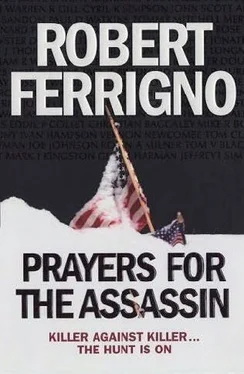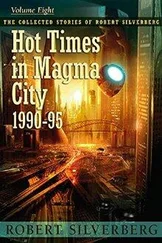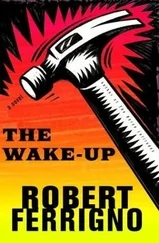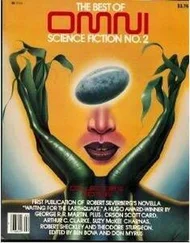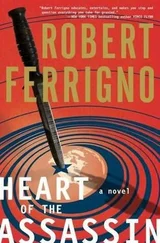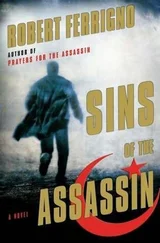Unlike the rote prayers at the Super Bowl, the cycles of the believers here were graceful, hands and feet perfectly positioned. Something about the majesty of the War Museum, the somber minimalism of the interior, the wreckage of the shattered Space Needle visible through the windows, made even the moderns cleave to their faith. He listened to the believers reaffirm the power and protection of Allah, their voices echoing in the great hall-“Glory be to our Lord the Most High.”
Rakkim moved on. Redbeard was here already. Rakkim had spotted his advance team about twenty minutes ago-four men dressed as tourists, gawkers with nametags. He had watched them split up, ambling toward the choke points, the narrow areas of the museum where an ambush would be most effective.
Rakkim had barely slept after seeing Spider last night, but Redbeard had insisted on meeting this morning, eager to discuss Rakkim’s progress. You have made progress, haven’t you, Rakkim?
Of course, I have, Uncle, it just depends on what you mean by progress. Rakkim wandered over to the Devil’s Chamber, stepped aside as a mother quickly led her children out. The little boy was weeping. The chamber seemed five or ten degrees colder than the rest of the museum, a darkened room where a wall screen played an endless loop of Richard Aaron Goldberg’s confession. This year would be the twenty-seventh anniversary of his public confession to the Zionist attack. The newspapers and television would run round-the-clock coverage as they did every year on this date, billboards and cell phones flashing 5-19-2015 NEVER FORGET.
Rakkim watched Goldberg on-screen, the man thin and frightened as he sat facing the cameras. The sound was nearly off, but it didn’t matter. Everyone in the country could repeat his confession verbatim.
My name is Richard Aaron Goldberg. Eleven days ago my team simultaneously detonated three nuclear weapons. One destroyed New York City. Another destroyed Washington, D.C., and the third left the city of Mecca a radioactive death trap. Our intention… Goldberg placed a hand on his shaking knee. The plan was for radical Islamists to be blamed. To drive a wedge between the West and Muslims, and to create chaos within the Muslim world itself. I think…I believe we would have succeeded had it not been for some bad luck. He lifted his chin. My name is Richard Aaron Goldberg. My team and I are part of a secret unit of the Mossad.
Rakkim watched the confession again. Then he walked back into the main hall. Spider might believe the bits and pieces he had pulled off Sarah’s flash-memory. Sarah might even believe what she had written. Rakkim didn’t. For Sarah to be right about the Zionist Betrayal meant that Richard Aaron Goldberg and the other confessed Mossad agents were lying their way to a date with the executioner. It meant Richard Aaron Goldberg and the others, born and raised in Israel, had turned against their country and their religion. Nothing was impossible, but Rakkim had just watched the confession the second time ignoring everything being said. Concentrating instead on Goldberg’s posture, his involuntary muscular movements, the look in his eye…the bastard was telling the truth. Sarah was wrong.
There might still be an Old One, some Arab eager to assume the mantle of Mahdi, some sworn enemy of Redbeard. Fine, get in line, Redbeard had plenty of enemies, but the Israelis were solely responsible for nuking New York and D.C. and Mecca. Sarah’s alternative history was wrong, but it didn’t matter. She was still in danger. If Redbeard was losing influence, though, as Spider said, then his ability to protect Sarah was compromised, and the Old One, or some other enemy, was in ascendance. An ominous power shift. Maybe that was the real reason Redbeard had asked for his help.
Rakkim kept walking.
The War Museum was a modest, understated dome built beside the crumpled Space Needle, the old monument lying on its side, rusting in the weather. The exterior of the museum was surfaced with small tiles made by schoolchildren, each one inscribed with the name of a martyred soldier. The interior was sparsely decorated and dimly lit, the walls lined with blue-veined lapis lazuli. Visitors, even the young, found themselves walking slowly, adding to the somber elegance of the site. At the center of the museum rested a simple, Arabic edition of the Qur’an. No bulletproof plastic or nitrogen-rich bubble was necessary to protect it. The book had been recovered from the ruins of Washington, D.C., found surrounded by broken glass and twisted girders. The Qur’an was untouched by the atomic blast, the cover pristine, its pages shiny and white.
Taking photographs inside the museum was not permitted, nor were reproductions available. This was sacred ground. Open to all, regardless of religion. The Black Robes had long sought to restrict the site to devout Muslims, but by presidential decree, the federal government maintained sole responsibility for the museum, with army personnel in charge of operations, and army imams responsible for prayers.
After the civil war, both sides had claimed Washington, D.C., fighting over the dead streets, hoping to recapture the glory of the former capital. The D.C. Qur’an had been the great prize for the Islamic Republic, while the Bible Belt carted off the statue of Thomas Jefferson from its memorial, installing the scorched marble in their new capital of Atlanta. Rakkim had actually seen the statue, waiting in line for hours to file past, silent, staring at the president’s solemn face through lead glass. New York City had remained largely untouched, its crumpled skyscrapers mute, the dingy Hudson lapping through Manhattan, the waters rising as the ice caps slowly melted.
Rakkim had been to New York only once, part of a recon team of Fedayeen dropped in to search for financial records rumored to be under the Stock Exchange. Three days in full containment gear and he never saw a bird. Or a rat. Or any other living thing. Except cockroaches. The roaches carpeted the basements, shimmering in the flashlight beams, wings aflutter, and he didn’t want to think about what they fed on. Three days…if there was anything under the Stock Exchange it remained safe and secure from the living. He was never so happy to leave a place.
Rakkim strolled toward the wall maps showing the great battles of the war. Chicago, reduced to cinders. Detroit’s auto works gutted by terrorist bombs. Sante Fe. Denver. The St. Louis arch collapsed. Newark, the deepest penetration into the Islamic states by the Christian armies. Newark fought block by block, a city given up to the flames. Newark, where Islamic reinforcements, most still in high school, had finally stopped the Christian advance. Bloody Newark. The photos of the dead went on for fifty yards. Rakkim had visited the museum hundreds of times, and the photos of the war’s leftovers always affected him the most. A single shoe, a black lace-up dress shoe, still so shiny you could see the photographer reflected. A crushed bicycle. An upended mailbox, letters spilling out onto the mud: phone bills and love letters and birthday cards.
The official death toll of the second civil war was 9 million, but Redbeard said the true figure was three or four times higher, much of that from outbreaks of plague and typhus and other dark diseases that had sprung up in the aftermath. The worst were the man-made toxins, lab-grown fever brews that twisted the infected into screaming knots or left them vomiting gouts of blood. Even now, whole cities were still quarantined-Phoenix and Dallas and Pittsburgh, hot zones where no one dared enter.
Rakkim watched a robed pilgrim moving slowly along the far wall, head tilted in prayer. His face was hidden within the folds of a hood, but something about his gait was familiar. Faces could be disguised, height and weight altered, but something as elemental as walking was almost impossible to shift. The pilgrim was Stevens, the pockmarked dandy Redbeard had sent to arrest him that night at the Blue Moon. Rakkim started toward the staircase. He wondered if the agent’s face was still swollen, if he liked the look of his broken nose, flaunting it as an injury in the line of duty.
Читать дальше
